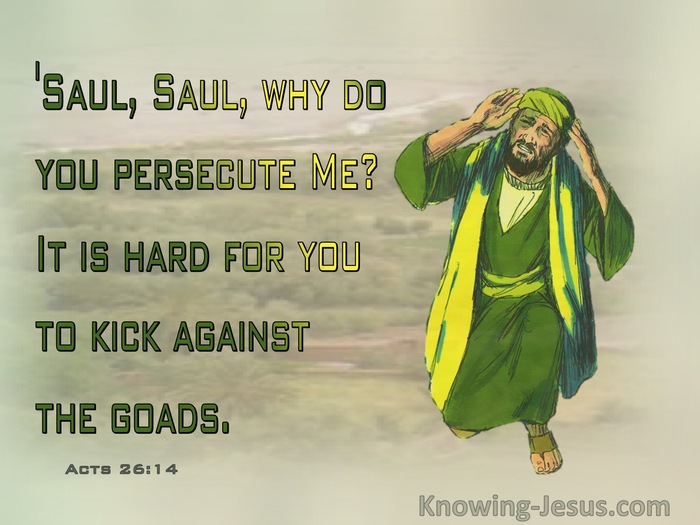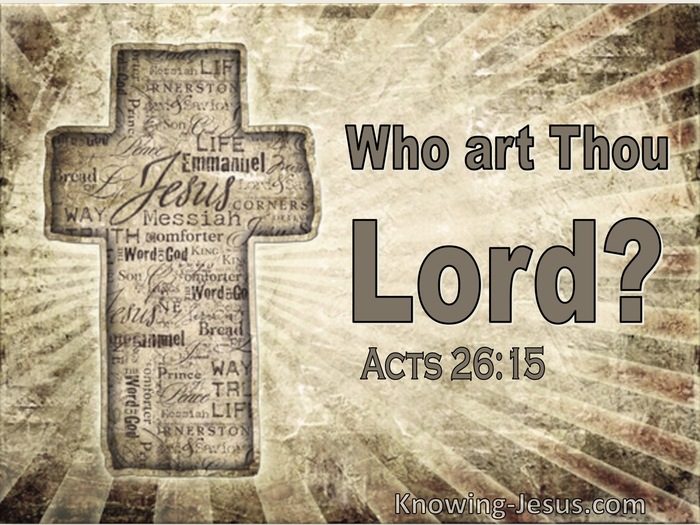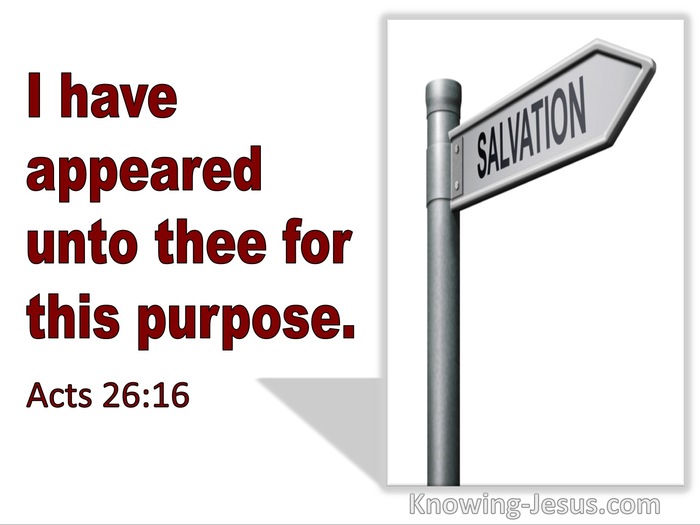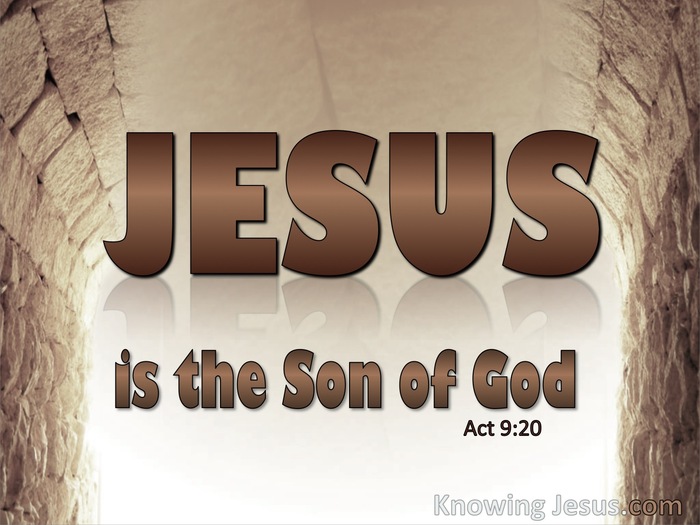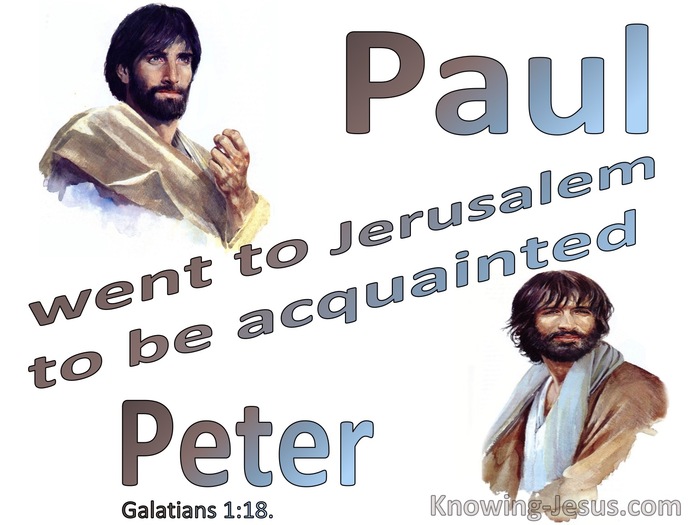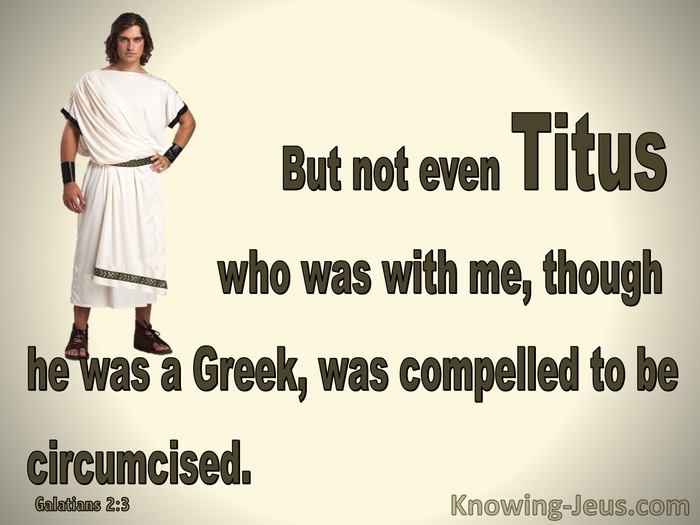55 Bible Verses about Paul, Life Of
Most Relevant Verses
although I could have confidence in the flesh. If anyone thinks he can place confidence in the flesh, I have more reason to think so. Having been circumcised on the eighth day, I am of the nation of Israel, from the tribe of Benjamin, a Hebrew of Hebrews. As far as the Law is concerned, I was a Pharisee.
So the tribune went and asked Paul, "Tell me, are you a Roman citizen?" "Yes," he said. Then the tribune replied, "I paid a lot of money for this citizenship of mine."
"I am a Jew, born in Tarsus in Cilicia but raised in this city and educated at the feet of Gamaliel in the strict ways of our ancestral Law. I am as zealous for God as all of you are today.
Paul replied, "I'm a Jew from Tarsus in Cilicia, a citizen of no insignificant city. Please let me speak to the people."
After this, Paul left Athens and went to Corinth. There he found a Jew named Aquila, a native of Pontus, who had recently come from Italy with his wife Priscilla because Claudius had ordered all the Jews to leave Rome. Paul went to visit them, and because they had the same trade he stayed with them. They worked together because they were tentmakers by trade.
Having been circumcised on the eighth day, I am of the nation of Israel, from the tribe of Benjamin, a Hebrew of Hebrews. As far as the Law is concerned, I was a Pharisee. As for my zeal, I was a persecutor of the church. As far as righteousness in the Law is concerned, I was blameless.
Meanwhile, still spewing death threats against the Lord's disciples, Saul went to the high priest. He asked him for letters to take with him to the synagogues in Damascus, so that if he found any men or women belonging to the Way, he might bring them in chains to Jerusalem.
"I said, "Lord, they themselves know that in every synagogue I kept imprisoning and beating those who believe in you. Even when the blood of your witness Stephen was being shed, I was standing there, approving it and guarding the coats of those who were killing him.'
For you have heard about my earlier life in Judaism how I kept violently persecuting God's church and was trying to destroy it.
Meanwhile, still spewing death threats against the Lord's disciples, Saul went to the high priest. He asked him for letters to take with him to the synagogues in Damascus, so that if he found any men or women belonging to the Way, he might bring them in chains to Jerusalem. As Saul traveled along and was approaching Damascus, a light from heaven suddenly flashed around him. read more.
He dropped to the ground and heard a voice saying to him, "Saul, Saul! Why are you persecuting me?" He asked, "Who are you, Lord?" The voice said, "I'm Jesus, whom you are persecuting. Now get up, go into the city, and you will be told what you are to do." Meanwhile, the men who were traveling with Saul were standing speechless, for they heard the voice but didn't see anyone. When Saul got up off the ground, he couldn't see anything, even though his eyes were open. So his companions took him by the hand and led him into Damascus. For three days he couldn't see, and he didn't eat or drink anything. Now in Damascus there was a disciple named Ananias. The Lord called out to him in a vision, "Ananias!" He answered, "Here I am, Lord." The Lord told him, "Get up, go to the street called Straight, and in the home of Judas look for a man from Tarsus named Saul. At this very moment he's praying. He has seen in a vision a man named Ananias come in and lay his hands on him so he would see again." But Ananias answered, "Lord, I have heard many people tell how much evil this man has done to your saints in Jerusalem. He is here with authority from the high priests to put in chains all who call on your name." But the Lord told him, "Go, because he's my chosen instrument to carry my name to unbelievers, to their kings, and to the descendants of Israel. since I'm going to show him how much he must suffer for my name's sake." So Ananias left and went to that house. He laid his hands on Saul and said, "Brother Saul, the Lord Jesus, who appeared to you on the road as you were traveling, has sent me so that you may see again and be filled with the Holy Spirit." All at once something like scales fell from Saul's eyes, and he could see again. He got up and was baptized, and after eating some food, he felt strong again. For several days he stayed with the disciples in Damascus.
"I am a Jew, born in Tarsus in Cilicia but raised in this city and educated at the feet of Gamaliel in the strict ways of our ancestral Law. I am as zealous for God as all of you are today. I persecuted this Way, even executing people, and kept tying up both men and women and putting them in prison, as the high priest and the whole council of elders can testify about me. I also received letters from them to the brothers in Damascus, and I was going there to tie up those who were there and bring them back to Jerusalem to be punished.read more.
"But while I was on my way and approaching Damascus about noon, a bright light from heaven suddenly flashed around me. I fell to the ground and heard a voice saying to me, "Saul! Saul! Why are you persecuting me?' "I answered, "Who are you, Lord?' "He told me, "I'm Jesus from Nazareth, whom you are persecuting.' The men who were with me saw the light but didn't understand the voice of the one who was speaking to me. "Then I asked, "What am I to do, Lord?' "The Lord told me, "Get up and go into Damascus, and there you will be told everything you are destined to do.' Since I could not see because of the brightness of the light, the men who were with me took me by the hand and led me into Damascus. "A certain Ananias, who was a devout man with respect to the Law and who was highly regarded by all the Jews living there, came to me. He stood beside me and said, "Brother Saul, receive your sight!' At that moment I could see him. "Then he said, "The God of our ancestors has chosen you to know his will, to see the Righteous One, and to hear his own voice, because you will be his witness to all people of what you have seen and heard. So now, what are you waiting for? Get up, be baptized, and have your sins washed away as you call on his name.'
Indeed, I myself thought it my duty to take extreme measures against the name of Jesus from Nazareth. That is what I did in Jerusalem. I received authority from the high priests and locked many of the saints in prison. And when I cast my vote against them, they were put to death. I would even punish them frequently in every synagogue and try to make them blaspheme. Raging furiously against them, I would hunt them down even in distant cities.read more.
"That is how I happened to be traveling to Damascus with authority based on a commission from the high priests. On the road at noon, O King, I saw a light from heaven that was brighter than the sun. It flashed around me and those who were traveling with me. "All of us fell to the ground, and I heard a voice asking me in the Hebrew language, "Saul! Saul! Why are you persecuting me? It is hurting you to keep on kicking against the cattle prods.' "I asked, "Who are you, Lord?' "The Lord answered, "I'm Jesus, whom you are persecuting. But get up and stand on your feet, because I've appeared to you for the very purpose of appointing you to be my servant and witness of what you've seen and of what I'll show you. I'll continue to rescue you from your people and from the gentiles to whom I'm sending you. You will help them understand and turn them from darkness to light and from Satan's control to God, so that their sins will be forgiven and they will receive a share among those who are sanctified by faith in me.'
But when God, who set me apart before I was born and who called me by his grace, was pleased to reveal his Son to me so that I might proclaim him among the gentiles, I did not confer with another human being at any time, nor did I go up to Jerusalem to see those who were apostles before me. Instead, I went away to Arabia and then came back to Damascus.
In Damascus, the governor under King Aretas put guards around the city of Damascus to catch me, but I was let down in a basket through an opening in the wall and escaped from him.
He got up and was baptized, and after eating some food, he felt strong again. For several days he stayed with the disciples in Damascus. He immediately started to preach about Jesus in the synagogues, saying, "This is the Son of God." Everyone who heard him was astonished and said, "This is the man who harassed those who were calling on Jesus' name in Jerusalem, isn't it? Didn't he come here to bring them in chains to the high priests?" read more.
But Saul grew more and more persuasive, and continued to confound the Jews who lived in Damascus by proving that this man was the Messiah. After several days had gone by, the Jewish leaders plotted to murder Saul, but their plot became known to him. They were even watching the gates day and night to murder him, but his disciples took him one night and let him down through the city wall by lowering him in a basket.
Then three years later, I went up to Jerusalem to become acquainted with Cephas, and I stayed with him for fifteen days.
When Saul arrived in Jerusalem, he tried to join the disciples, but they all were afraid of him because they wouldn't believe he was a disciple. Barnabas, however, introduced Saul to the apostles, telling them how on the road Saul had seen the Lord, who had spoken to him, and how courageously he had spoken in the name of Jesus in Damascus. So he freely circulated among them in Jerusalem, speaking courageously in the name of the Lord.
He kept talking and arguing with the Hellenistic Jews, but they were bent on murdering him. When the brothers found out about the plot, they took him down to Caesarea and sent him away to Tarsus.
Then Barnabas left for Tarsus to look for Saul. When he found him, he brought him to Antioch, and for a whole year they were guests of the church and taught many people. It was in Antioch that the disciples were first called Christians.
Now Barnabas, Simeon called Niger, Lucius from Cyrene, Manaen, who grew up with Herod the tetrarch, and Saul were prophets and teachers in the church at Antioch. While they were worshiping the Lord and fasting, the Holy Spirit said, "Set Barnabas and Saul apart for me to do the work for which I called them." Then they fasted and prayed, laid their hands on them, and let them go. read more.
After they had been sent out by the Holy Spirit, they went to Seleucia and from there sailed to Cyprus. Arriving in Salamis, they began to preach God's word in the Jewish synagogues. They also had John to help them. They went through the whole island as far as Paphos, where they found a Jewish occult practitioner and false prophet named Bar-jesus.
In Iconium, Paul and Barnabas went into the Jewish synagogue and spoke in such a way that a great number of both Jews and Greeks believed.
Then fourteen years later, I again went up to Jerusalem with Barnabas, taking Titus with me. I went in response to a revelation, and in a private meeting with the reputed leaders, I explained to them the gospel that I'm proclaiming to the gentiles. I did this because I was afraid that I was running or had run my life's race for nothing. But not even Titus, who was with me, was forced to be circumcised, even though he was a Greek. read more.
However, false brothers were secretly brought in. They slipped in to spy on the freedom we have in the Messiah Jesus so that they might enslave us. But we did not give in to them for a moment, so that the truth of the gospel might always remain with you. Now those who were reputed to be important added nothing to my message. (What sort of people they were makes no difference to me, since God pays no attention to outward appearances.) In fact, they saw that I had been entrusted with the gospel for the uncircumcised, just as Peter had been entrusted with the gospel for the circumcised. For the one who worked through Peter by making him an apostle to the circumcised also worked through me by sending me to the gentiles. So when James, Cephas, and John (who were reputed to be leaders) recognized the grace that had been given me, they gave Barnabas and me the right hand of fellowship, agreeing that we should go to the gentiles and they to the circumcised. The only thing they asked us to do was to remember the destitute, the very thing I was eager to do.
Then some men came down from Judea and started to teach the brothers, "Unless you are circumcised according to the Law of Moses, you can't be saved." Paul and Barnabas had quite a dispute and argument with them. So Paul and Barnabas and some of the others were appointed to go up to Jerusalem to confer with the apostles and elders about this question. They were sent on their way by the church, and as they were going through Phoenicia and Samaria they told of the conversion of the gentiles and brought great joy to all the brothers. read more.
When they arrived in Jerusalem, they were welcomed by the church, the apostles, and the elders, and they reported everything that God had done through them. But some believers from the party of the Pharisees stood up and said, "The gentiles must be circumcised and ordered to keep the Law of Moses." So the apostles and the elders met to look into this claim.
A few days later, Paul told Barnabas, "Let's go back and visit the brothers in every town where we proclaimed the word of the Lord and see how they're doing." Barnabas wanted to take along John, who was called Mark, but Paul did not think it was right to take along the man who had deserted them in Pamphylia and who had not gone with them into the work. read more.
The disagreement was so sharp that they parted ways. Barnabas took Mark and sailed to Cyprus, while Paul chose Silas and left after the brothers had entrusted him to the grace of the Lord. He went through Syria and Cilicia and strengthened the churches.
Because they had been prevented by the Holy Spirit from speaking the word in Asia, Paul and Timothy went through the region of Phrygia and Galatia. They went as far as Mysia and tried to enter Bithynia, but the Spirit of Jesus did not permit them, so they bypassed Mysia and went down to Troas.
During the night Paul had a vision. A man from Macedonia was standing there and pleading with him, "Come over to Macedonia and help us!" As soon as he had seen the vision, we immediately looked for a way to go to Macedonia, because we were convinced that God had called us to tell the people there the good news. Sailing from Troas, we went straight to Samothrace, the next day to Neapolis, read more.
and from there to Philippi, an important city of the district of Macedonia and a Roman colony. We were in this city for several days.
Paul and Silas traveled through Amphipolis and Apollonia and came to Thessalonica, where there was a Jewish synagogue.
The men who escorted Paul took him all the way to Athens and, after receiving instructions to have Silas and Timothy join him as soon as possible, they left.
After staying there for quite a while longer, Paul said goodbye to the brothers and sailed for Syria, accompanied by Priscilla and Aquila. He had his hair cut in Cenchrea, since he was under a vow. When they arrived in Ephesus, he left Priscilla and Aquila there. Then he went into the synagogue and had a discussion with the Jews. They asked him to stay longer, but he refused. read more.
As he told them goodbye, he said, "I will come back to you again if it is God's will." Then he set sail from Ephesus. When he arrived in Caesarea, he went up to Jerusalem, greeted the church there, and then returned to Antioch.
After spending some time there, he departed and went from place to place through the region of Galatia and Phrygia, strengthening all the disciples.
It was while Apollos was in Corinth that Paul passed through the inland districts and came to Ephesus. He found a few disciples there and asked them, "Did you receive the Holy Spirit when you believed?" They answered him, "No, we haven't even heard that there is a Holy Spirit." He then asked, "Then into what were you baptized?" They answered, "Into John's baptism."read more.
Then Paul said, "John baptized when they repented, telling the people to believe in the one who was to come after him, that is, in Jesus." On hearing this, they were baptized in the name of the Lord Jesus. When Paul laid his hands on them, the Holy Spirit came on them, and they began to speak in foreign languages and to prophesy. There were about twelve men in all. He went into the synagogue and spoke there boldly for three months, holding discussions and persuading those who heard him about the kingdom of God. But when some people became stubborn, refused to believe, and slandered the Way in front of the people, Paul left them, taking his disciples away with him, and held daily discussions in the lecture hall of Tyrannus. This went on for two years, so that all who lived in Asia, Jews and Greeks alike, heard the word of the Lord. God continued to do extraordinary miracles through Paul. When handkerchiefs and aprons that had touched his skin were taken to the sick, their diseases left them and evil spirits went out of them.
If I have fought with wild animals in Ephesus from merely human motives, what do I get out of it? If the dead are not raised, "Let's eat and drink, for tomorrow we die."
However, I'll stay on in Ephesus until Pentecost, because a door has opened wide for me to do effective work, although many people are opposing me.
Because I was confident, I planned to come to you first so you might receive a double blessing. I planned to leave you in order to go to Macedonia, and then come back to you from Macedonia, and let you send me on to Judea.
I wrote to you out of great sorrow and anguish of heart along with many tears not to make you sad but to let you know how much love I have for you.
I have already warned those who sinned previously and all the rest. Although I am absent now, I am warning them as I did on my second visit: If I come back, I will not spare you,
When the uproar was over, Paul sent for the disciples and encouraged them. Then he said goodbye to them and left to go to Macedonia. He went through those regions and encouraged the people with everything he had to say. Then he went to Greece and stayed there for three months. When he was about to sail for Syria, a plot was initiated against him by the Jews, so he decided to go back through Macedonia. read more.
He was accompanied by Sopater (the son of Pyrrhus) from Berea, Aristarchus and Secundus from Thessalonica, Gaius from Derbe, Timothy, and Tychicus and Trophimus from Asia. These men went on ahead and were waiting for us in Troas. After the Festival of Unleavened Bread, we sailed from Philippi, and days later we joined them in Troas and stayed there for seven days.
When I went to Troas on behalf of the gospel of the Messiah, the Lord opened a door for me, but my spirit could not find any relief, because I couldn't find Titus, my brother. So I said goodbye to them and went on to Macedonia.
After the Festival of Unleavened Bread, we sailed from Philippi, and days later we joined them in Troas and stayed there for seven days.
When we had torn ourselves away from those brothers, we sailed straight to Cos, and the next day to Rhodes, and from there to Patara. There we found a ship going across to Phoenicia, so we went aboard and sailed on. We came in sight of Cyprus, and leaving it on our left, we sailed on to Syria and landed at Tyre because the ship was to unload its cargo there. read more.
So we located some disciples and stayed there for seven days. Through the Spirit, they kept telling Paul not to go to Jerusalem, but when our time there came to an end, we left and proceeded on our journey. All of them accompanied us with their wives and children out of the city. We knelt on the beach, prayed, and said goodbye to each other. Then we reboarded the ship, and they went back home. When we completed our voyage from Tyre, we arrived at Ptolemais, greeted the brothers there, and stayed with them for one day. The next day, we left and came to Caesarea. We went to the home of Philip the evangelist, one of the Seven, and stayed with him.
Right now, however, I'm going to Jerusalem to minister to the saints, because the believers in Macedonia and Achaia have been eager to share their resources with the poor among the saints in Jerusalem.
When the seven days were almost over, the Jews from Asia, seeing Paul in the Temple, stirred up a large crowd. They grabbed Paul, yelling, "Men of Israel, help! This is the man who teaches everyone everywhere to turn against our people, the Law, and this place. More than that, he has even brought Greeks into the Temple and desecrated this Holy Place." For they had earlier seen Trophimus the Ephesian in the city with him and assumed that Paul had taken him into the Temple. read more.
The whole city was in chaos. The people rushed together, grabbed Paul, dragged him out of the Temple, and at once the doors were sealed shut. The crowd was trying to kill Paul when a report reached the tribune of the cohort that all Jerusalem was in an uproar. Immediately the tribune took some soldiers and officers and ran down to the crowd. When the people saw the tribune and the soldiers, they stopped beating Paul. Then the tribune came up, grabbed Paul, and ordered him to be tied up with two chains. He then asked who Paul was and what he had done. Some of the crowd shouted this and some that. Since the tribune couldn't learn the facts due to the confusion, he ordered Paul to be taken into the barracks.
In the morning, the Jewish leaders formed a conspiracy and took an oath not to eat or drink anything before they had killed Paul. More than 40 men formed this conspiracy. They went to the high priests and elders and said, "We have taken a solemn oath not to taste any food before we have killed Paul. read more.
Now then, you and the Council must notify the tribune to bring him down to you on the pretext that you want to look into his case more carefully, but before he arrives we'll be ready to kill him." But the son of Paul's sister heard about the ambush, so he came and got into the barracks and told Paul. Then Paul called one of the centurions and said, "Take this young man to the tribune, because he has something to tell him." So the centurion took him, brought him to the tribune, and said, "The prisoner Paul called me and asked me to bring this young man to you. He has something to tell you." The tribune took him by the hand, stepped aside to be alone with him, and asked, "What have you got to tell me?" He answered, "The Jewish leaders have agreed to ask you to bring Paul down to the Council tomorrow as though they were going to examine his case more carefully. Don't believe them, because more than 40 of them are planning to ambush him. They've taken an oath not to eat or drink before they've killed him. They are ready now, just waiting for your consent."
Then he summoned two centurions and ordered, "Get 200 soldiers ready to leave for Caesarea at nine o'clock tonight, along with 70 mounted soldiers and 200 soldiers with spears. Provide a mount for Paul to ride, and take him safely to Governor Felix." He wrote a letter with this message:read more.
"From: Claudius Lysias To: Governor Felix Greetings, Your Excellency: This man had been seized by the Jews and was about to be killed by them when I went with the guard and rescued him, having learned that he was a Roman citizen. I wanted to know the exact charge they were making against him, so I had him brought before their Council. I found that, although he was charged with questions about their Law, there was no charge against him deserving death or imprisonment. Since a plot against the man has been reported to me, I'm sending him to you at once, and I've also ordered his accusers to present their charges against him before you." So the soldiers, in keeping with their orders, took Paul and brought him by night to Antipatris. The next day, they let the horsemen ride with Paul while they returned to their barracks. When these men came to Caesarea, they delivered the letter to the governor and handed Paul over to him. After reading the letter, the governor asked which province Paul was from. On learning that he was from Cilicia, he said, "I will hear your case when your accusers arrive." Then he ordered Paul to be kept in custody in Herod's palace.
He ordered the centurion to guard Paul but to let him have some freedom and not to keep any of his friends from caring for his needs. Some days later, Felix arrived with his wife Drusilla, who was Jewish. He sent for Paul and listened to him talk about faith in Jesus the Messiah. As Paul talked about righteousness, self-control, and the coming judgment, Felix became afraid and said, "For the present you may go. When I get a chance, I will send for you again." read more.
At the same time he was hoping to receive a bribe from Paul, and so he would send for him frequently to talk with him. After two years had passed, Felix was succeeded by Porcius Festus. Since Felix wanted to do the Jews a favor, he left Paul in prison.
Three days after Festus had arrived in the province, he went up from Caesarea to Jerusalem. The high priests and Jewish leaders informed him of their charges against Paul, urging and asking Festus to have Paul brought to Jerusalem as a favor. They were laying an ambush to kill him on the road.read more.
Festus replied that Paul was being kept in custody at Caesarea and that he himself would be going there soon. "Therefore," he said, "have your authorities come down with me and present their charges against him there, if there is anything wrong with the man." Festus stayed with them no more than eight or ten days and then went down to Caesarea. The next day, he sat on the judge's seat and ordered Paul brought in. When Paul arrived, the Jewish leaders who had come down from Jerusalem surrounded him and began bringing a number of serious charges against him that they couldn't prove. Paul said in his defense, "I have done nothing wrong against the Law of the Jews, or of the Temple, or of the emperor." Then Festus, wanting to do the Jewish leaders a favor, asked Paul, "Are you willing to go up to Jerusalem to be tried there before me on these charges?" But Paul said, "I am standing before the emperor's judgment seat where I ought to be tried. I haven't done anything wrong to the Jewish leaders, as you know very well. If I'm guilty and have done something that deserves death, I'm willing to die. But if there is nothing to their charges against me, no one can hand me over to them as a favor. I appeal to the emperor!" Festus talked it over with the council and then answered, "To the emperor you have appealed; to the emperor you will go!"
When it was decided that we should sail to Italy, Paul and some other prisoners were transferred to a centurion named Julius, who belonged to the emperor's division. After boarding a ship from Adramyttium that was about to sail to the ports on the coast of Asia, we put out to sea. Aristarchus, a Macedonian from Thessalonica, went with us. The next day, we arrived at Sidon, and Julius treated Paul kindly allowing him to visit his friends there and to receive any care he needed. read more.
After putting out from there, we sailed on the sheltered side of Cyprus because the winds were against us. We sailed along the sea off Cilicia and Pamphylia and reached Myra in Lycia. There the centurion found an Alexandrian ship bound for Italy and put us on it. We sailed slowly for a number of days and with difficulty arrived off Cnidus. Then, because the wind was against us, we sailed on the sheltered side of Crete off Cape Salome. Sailing past it with difficulty, we came to a place called Fair Havens, near the town of Lasea. Much time had been lost, and because navigation had become dangerous and the day of fasting had already past, Paul began to warn those on the ship, "Men, I see that during this voyage there will be hardship and a heavy loss not only of the cargo and ship, but also of our lives." But the centurion was persuaded by the pilot and the owner of the ship and not by what Paul said. Since the harbor was not a good place to spend the winter, most of the men favored putting out to sea from there on the chance that somehow they could reach Phoenix and spend the winter there. It is a Cretian harbor that faces southwest and northwest. When a gentle breeze began to blow from the south, they thought they could make it to Phoenix, so they hoisted anchor and began sailing along the shore of Crete. But it was not long before a violent wind (called a northeaster) swept down from the island. The ship was caught so that it couldn't face the wind, and we gave up and were swept along. As we drifted to the sheltered side of a small island called Cauda, we barely managed to secure the ship's lifeboat. The ship's crew pulled it up on deck and used ropes to brace the ship. Fearing that they would hit the large sandbank near Libya, they lowered the sail and drifted along. The next day, because we were being tossed so violently by the storm, they began to throw the cargo overboard. On the third day they threw the ship's equipment overboard with their own hands. For a number of days neither the sun nor the stars were to be seen, and the storm continued to rage until at last all hope of our being saved vanished. After they had gone a long time without food, Paul stood among his shipmates and said, "Men, you should have listened to me and not have sailed from Crete. You would have avoided this hardship and damage. But now I urge you to have courage, because there will be no loss of life among you, but only loss of the ship. For just last night an angel of God, to whom I belong and whom I serve, stood by me and said, "Stop being afraid, Paul! You must stand before the emperor. Indeed, God has given to you the lives of everyone who is sailing with you.' So take courage, men, because I trust God that it will turn out just as he told me. However, we will have to run aground on some island." It was the fourteenth night, and we were drifting through the Adriatic Sea, when about midnight the sailors suspected that land was near. After taking soundings, they found the depth to be twenty fathoms. A little later, they took soundings again and found it was fifteen fathoms.
Three months later, we continued our sailing onboard an Alexandrian ship that had spent the winter at the island. It had the Twin Brothers as its figurehead. We stopped at Syracuse and stayed there for three days. Then we weighed anchor and came to Rhegium. A day later, a south wind began to blow, and on the second day we came to Puteoli. read more.
There we found some brothers and were invited to stay with them for seven days. After this, we arrived in Rome. The brothers there heard about us and came as far as the Forum of Appius and the Three Taverns to meet us. When Paul saw them, he thanked God and felt encouraged. When we came into Rome, Paul was allowed to live by himself with the soldier who was guarding him.
When I was on my way to Macedonia, I urged you to stay in Ephesus so that you could instruct certain people to stop teaching false doctrine
When you come, bring the coat I left with Carpus in Troas, as well as the scrolls and especially the parchments.
The reason I left you in Crete was to complete what still needed to be done and to appoint elders in every city, as I myself commanded you.
As soon as I send Artemas to you, or perhaps Tychicus, do your best to come to me at Nicopolis, for I have decided to spend the winter there.


